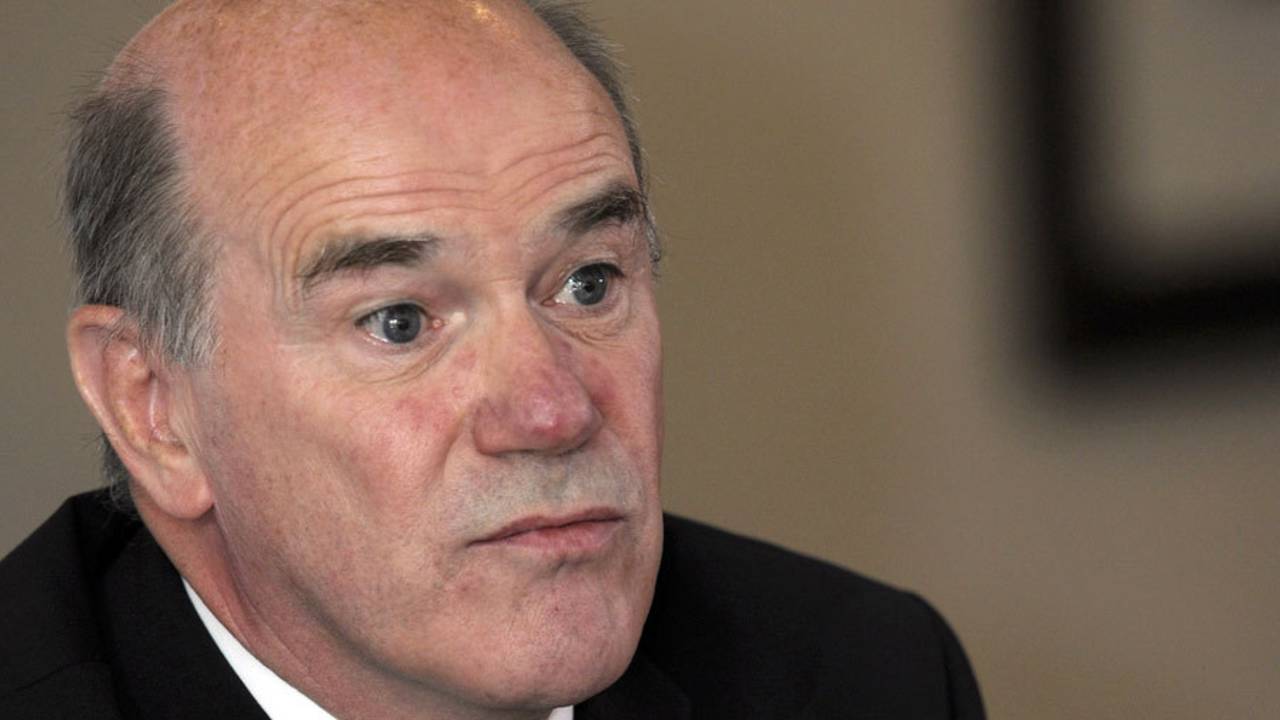Sir Ronnie Flanagan, the chairman of the ICC's anti-corruption and security unit (ACSU), says that his body is close to signing a memorandum of understanding with the UK's National Crime Agency that will enable a greater level of intelligence on cricket corruption to be shared between all police forces in the United Kingdom.
"We have a whole series of ongoing investigations at the moment ranging across different countries so the benefit of the increased co-ordination are already being seen," Flanagan told The Daily Telegraph.
"We want MOUs with investigative bodies wherever world cricket is played. We have it already in New Zealand and Australia and we are in the final stages in drawing them up to be signed within the next month or so with South Africa, India and the National Crime Agency in the UK."
However, Flanagan denied that his unit needed to "regain the trust" of the players whom it is supposed to protect, in the wake of the
Chris Cairns perjury trial in which leaked testimony from the current New Zealand captain,
Brendon McCullum, formed one of the key pieces of evidence in the failed prosecution.
Several players' union spokesmen, including the outgoing head of the Professional Cricketers' Association, Angus Porter, have said that the treatment of McCullum and other witnesses during that trial will make other players more reluctant to speak out about approaches in the future.
However, Flanagan added that the ACSU is not a police force and therefore has limited investigative powers. Instead, he said, players needed to get the message that "we are their friend and here to protect them."
"I don't feel we have to regain trust," he said. "At the recent World Cup the relationship we had was very positive and the feedback we had from teams was very positive too. It is a question of building on that and making the players realise we are there to protect them and that we are not there to snoop on them. We are there to protect players from the predators that would want draw them in."
The criticism of the ACSU during the Cairns trial centred on its failure to produce sufficient evidence to support the prosecution - it was said during the trial, by the former ICC intelligence unit general manager Ravinder Sawani, that the information it had collected went "beyond rumour", yet very little of it was revealed in court. Cairns, who pleaded not guilty to two counts of perjury and perverting the course of justice, was acquitted last month after a nine-week trial at Southwark Crown Court.
It was claimed in the same newspaper that the ACSU had examined 450 intelligence reports in 2015 alone, of which around 20 percent had originated from players and umpires. That represents a steady rise in reports over the past five years, with 70 being handled in 2009 and 281 in 2011.
"It is very important that there is a recognition that we are not a police force, do not seek to be a police force and do not have the powers," said Flanagan. "We cannot investigate members of the public. We can only investigate people within our remit, players in the international game as far as the ACSU is concerned, which is why it is so important to work hand in glove with colleagues in individual nations that have their own anti-corruption structures.
"It is also key that we keep good relationships with other sports whether it be tennis, horse racing, rugby or soccer because I'm convinced the bad guys do not confine themselves to one sport."
Prevention, Flanagan believes, is as important a part of the unit's work as investigation, and to that end, a new head of prevention is being appointed to improve its education programme, alongside a new director and co-ordinator of investigations, and a senior analyst.
"The job of the head of prevention is to look at everything that goes on with educating players, make sure we are getting the best from that and bring it up to date," said Flanagan. "I want to work with the players' associations to make sure that our education programme is world class."
